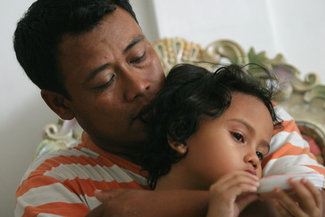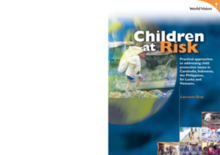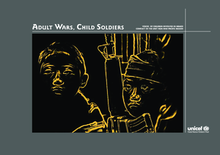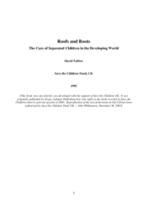

Displaying 691 - 700 of 714
Discusses approaches to protecting at-risk children in five Asian countries. Identifies programming and policy measures that effectively address child abuse. Emphasis on committing all levels of society to coordinated practical response.
A training guide for health and social workers on the delivery of medical and psychosocial services to survivors of sexual abuse.
Highlights the work of Childhope Asia Philippines and Families and Children for Empowerment and Development in helping street children living in and around Manila.
A qualitative evaluation of child soldiering in the East Asia and Pacific region based on accounts of current and former child soldiers. Includes comprehensive guidelines for interviewing children about their experiences with child soldiering.
Report from a regional meeting on street children in South Asia. Contains country reports, outlines key issues, and highlights best practices for programs operating in the region. Includes recommendations for advocacy, program and policy development.
Outlines national efforts to disarm, demobilize, and reintegrate former child soldiers with respect to specific political contexts. Includes lessons learned, future challenges, and recommendations.
Country report of Vietnam on the situation of children in residential care in anticipation of the Second International Conference on Children and Residential Care: New Strategies for a New Millennium, to be held in Stockholm 12 – 15 May 2003.
Country report of the Philippines on the situation of children in residential care in anticipation of the Second International Conference on Children and Residential Care: New Strategies for a New Millennium, to be held in Stockholm 12 – 15 May 2003.
Save the Children’s research and analysis of residential care services and the need for alternative non-institutional approaches for children separated from their families. This book examines policy and practices from work in Africa, Asia, Latin America and the Caribbean, and Eastern and Central Europe.
This webinar featured presentations and discussions from practitioners who have experience of working on alternative care (short term and long term) and prioritising family-based care in emergency settings that could be helpful for practitioners in India as they plan a response for children who have lost parents to COVID-19.






